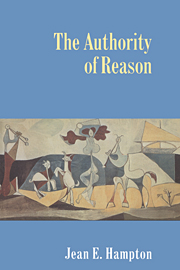Book contents
- Frontmatter
- Contents
- Editor's Preface
- Preface and Acknowledgments
- Introduction
- PART I SCIENCE AND OBJECTIVE NORMS
- PART II INSTRUMENTAL REASON
- PART III REASONS AND REASONING
- 7 Expected Utility Theory and Instrumental Reasoning
- 8 Expected Utility Theory and Consequentialism
- 9 Toward a “Postnaturalist” Theory of Reasons
- Bibliography
- Index
9 - Toward a “Postnaturalist” Theory of Reasons
Published online by Cambridge University Press: 02 December 2009
- Frontmatter
- Contents
- Editor's Preface
- Preface and Acknowledgments
- Introduction
- PART I SCIENCE AND OBJECTIVE NORMS
- PART II INSTRUMENTAL REASON
- PART III REASONS AND REASONING
- 7 Expected Utility Theory and Instrumental Reasoning
- 8 Expected Utility Theory and Consequentialism
- 9 Toward a “Postnaturalist” Theory of Reasons
- Bibliography
- Index
Summary
Thesis of this book: Naturalist moral skepticism, based on a naturalist theory of reasons, fails. Naturalizing the reasons that the naturalist requires for his own conception of practical reason and scientific methodology fails. The same nonnatural “authority” of moral reasons attends the naturalist's instrumental reasons; the same reflection on the nature of human good that is required in order to live a moral life is also required to live an instrumentally rational life. The naturalist-friendly conception of instrumental reasoning as consequentialist turns out to be inadequate. And if instrumental reasoning must be construed along nonconsequentialist lines in order to understand what we do, the claims by moral theorists that moral reasoning is nonconsequentialist become yet more plausible.
What do we do now? The death of one conception of reasons clears the way for the birth of another. The naturalist conception seemed simple, elegant, and commonsensical, but since it turned out to be none of these things, how do we construct a theory of reasons that is more successful? What are the criteria that we should use? What vestiges of the naturalist program, if any, should we remain wedded to?
There is, in my view, considerable virtue in the naturalist insistence on developing a theory that resists nonsense and flights of metaphysical fancy.
- Type
- Chapter
- Information
- The Authority of Reason , pp. 288 - 292Publisher: Cambridge University PressPrint publication year: 1998



